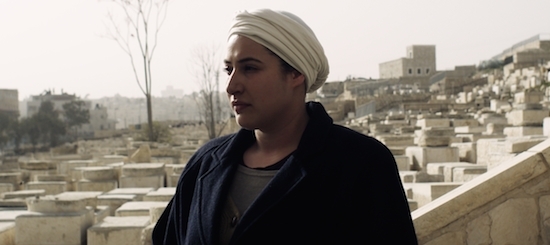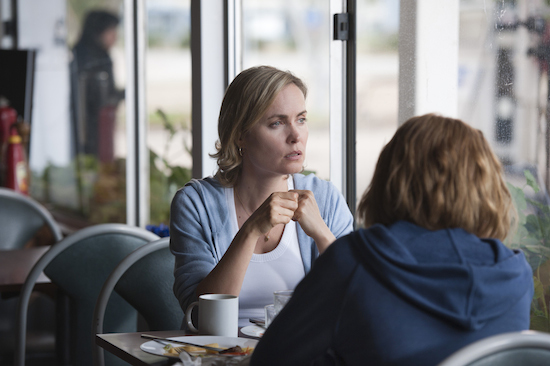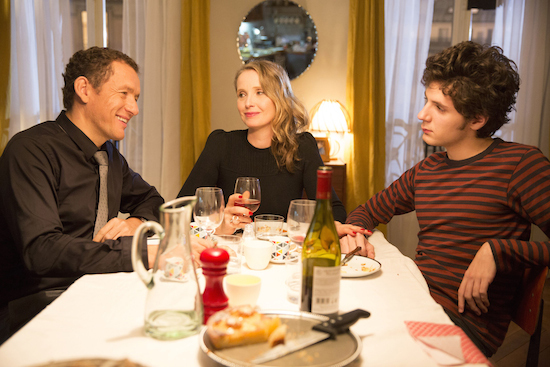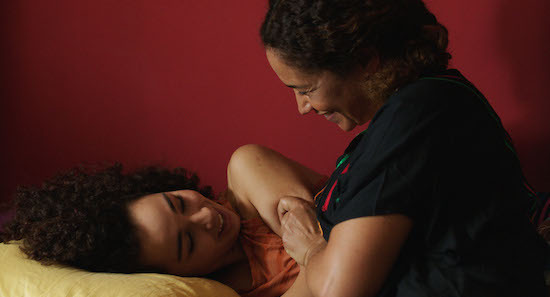I'm angry. As a woman film blogger, I need twice as much effort and talent to get a quarter of the recognition that my male counterparts receive. I notice it on a daily basis, and I've grown to really hate it.
I'm surrounded by men, and some older women, at press and industry screenings of films here at the Venice Film Festival. Ninety percent of reviews and features about the festival are written by male critics and journos. It's a vicious cycle because when a film by a woman filmmaker, with an unconventional yet exceptional female protagonist like Yaëlle Kayam's Mountain is screened, it is most likely not to even get mentioned, or reviewed. And so the next touching film is just a step away from never being made again... Think about it. If you were a producer, would you give money to a project that will surely get the testosterone approval, or gamble on a woman who will most certainly make a beautiful film but may not be understood by the great powers that be who play gods and decide the destiny of a film? Even I may choose the former, if I'd putting in my hard-earned money.
So, I'm vexed. But thankfully I'm in good company. I loved waking up to this tweet by Melinda Gates earlier this morning.
Perhaps as women we should also help each other, and lets face it, we don't! If only a handful of the hundreds of women I know, and in a lot of cases have written about to encourage their efforts and projects, put a "like" on Facebook or tweeted one of my pieces, it would help reverse the cycle. But they don't. Because that's how we've been programmed.
So I've decided that here and now, I'm only talking about the incredible female talents I've observed at this festival. From Kayam's Mountain to Sue Brooks' Looking for Grace, from Julie Delpy's Lolo to Leyla Bouzid's As I Open My Eyes, I have never felt more proud to be a woman.
Sue Brooks' Looking for Grace is a film that stayed with me, and has continued to find new nooks inside my heart. I feel strongly about the idea of responsibility but also fate, how one second in our lives can change it all, and sometimes that second, that instant in time has nothing to do with us. One such moment changed my life dramatically, and so Brooks' film gave me goosebumps. Looking for Grace is about what we do with those life-changing instances, but also what brought us there. It stars an ensemble cast headed by the stunning Radha Mitchell -- as I sat across from her in a suite in the Excelsior, I could not believe how radiant she is in person -- along with super talented newcomer Odessa Young and the perfect Richard Roxburgh. It was an interesting experiment for me to read how two critics, one a woman and one a man, have seen the film in a completely different light. I tell you, more women filmmakers, more women critics. I'll say it as long as I have breath.
Julie Delpy's Lolo is a comedy with serious undertones. In Italy we have the concept of the "mammone", a man who lives at home and is cared for hand and foot by his mother. In Lolo, Delpy deals with a similar concept in France, only with a twist. What if your son became so set in his ways at home that he tried to get rid of any and all competition? And what if that competition is a charming, perfectly naive man played to perfection by the delicious Dany Boon? Well, with the perfect thinking woman's superstar Delpy playing the mother of said son and object of Boon's affections, the film worked in every way for me and supplied serious thoughts to go along with my entertainment -- just what I love about cinema!
Leyla Bouzid's As I Open My Eyes is an unusual film, a mix of musical, Arab spring revolution drama and growing pains romance. The events of Tunisia, Egypt then Syria and Libya have changed the way film is made in the Arab world. When I watch a project from the region these days, I often wonder whether the story will take place before or after the Spring of 2011. In Tunisia's case, before or after December 2010... Bouzid's film takes place, well, in the months leading up to Tunisia's revolution but it has as much to do with youth, growing up, learning to love and dealing with everyday life as it does with the uprising. The film's protagonist Farah, played by Baya Medhaffer, is a woman, a young woman complete with desires, joy, anger and doubt. She has great parents, Farah's mother is played by singer Ghalia Ben Ali, who provides yet another cinematic reason to be proud of our stronger sex! And a middle class good life, but she's dissatisfied. Perhaps the reason I loved Bouzid's film so much is because it taught me about Tunisia from the inside out, and from the prospective of women who aren't afraid to be exactly who they are.
Finally, Yaëlle Kayam's Mountain. Wow. Talk about a filmmaker who is unafraid of ruffling a few feathers, including her audiences'. And I love, love, love that on a blog here, I can talk about both a Tunisian filmmaker and an Israeli one in the same sentence. It's so liberating and so world-unifying at once. But back to Mountain. Often, while I'm watching a film, I wish the filmmaker would leave something to my imagination. I find myself silently repeating "end it here, end it here" while watching a particularly poignant, enigmatic moment towards the end of a movie. But in Mountain, just as I thought it, Kayam did indeed end it -- thus leaving her audience with a question that we'll all try to find the answer to for months, maybe years to come. And maybe the greatest beauty about Mountain is that we'll never come up with it, not really. Kayam's film is thoroughly engrossing from the first shot, of an Orthodox woman (played by the riveting Shani Klein) walking among the tombstones of the cemetery on the Mount of Olives, to the last. It is stunningly shot, perfectly edited and humanly acted.
So hail to the power of women in Venice. Hail to the power of cinema.
All images courtesy of La Biennale di Venezia, used with permission.




